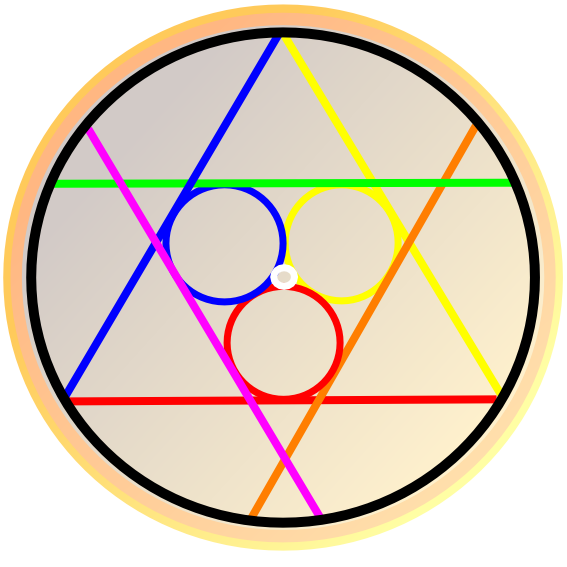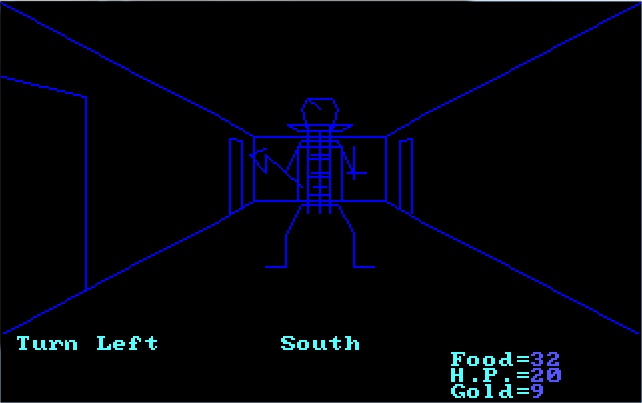Last updated on November 12, 2012
10 “Do we not all have one father? Has not one God created us? Why do we deal treacherously each against his brother so as to profane the covenant of our fathers?
– Malachi 2
Wow, do I know ABSOLUTELY NOTHING about CRPGs. It’s almost to the point of shame! Granted, my family never really owned a computer until somewhere around 1996 or so, a Packard Bell that was designed for work more than games, but still. Even when I got a gaming PC that could run the games from the late 90s CRPG boom, I honestly wasn’t interested, preferring to stick with my Final Fantasy. Was that a bad decision? Maybe. But I want to make up some ground.
It’s easy enough to cast the CRPG as the true progenitor of the original role-playing game – Dungeons and Dragons. D&D was, and still is, the only true “role-playing” game precisely because its possibilities aren’t limited by the restrictive environment of video game worlds. A dungeon master changes the world, circumstances, and challenges on the fly, enabling each experience (though obviously guided somewhat by the rulebooks) to be unique, interesting, and fun.
However, many had ambitions to take this new form and turn it into a computer game experience. It surprises no one that the computer game audience and the D&D audience intersected at many junctures. The problem remained: how do you translate this fascinating experience into a computer game? Well, you keep the rules and you leave out the rest until you can truly integrate them.
As an early example, we can see Richard Garriott’s Akalabeth. For those who don’t even know who he is – and, frankly, you wouldn’t be in the minority – Garriott, known by nickname as “Lord British”, created the Ultima series and kick-started this new medium into gear. Akalabeth was his first, and most primitive, attempt at bringing the genre to computers. Although he had recently begun playing D&D in 1977 (and D&D itself came into being in 1974), Akalabeth came quickly at 1979 to introduce the world to the CRPG. It retains many of the modern tropes of role-playing games, including experience levels, character development in the form of class, shopkeepers, a combat system, and a wide open world to explore. Of course, said world required a great deal of imagination:
Obviously, the game hasn’t aged well, but it’s a great historical artifact if you’re into that sort of thing. CRPGs, however, weren’t ever about fancy graphics or great music; they were about choice and exploration, much like in D&D. Garriott continued to refine his initial concept, eventually creating the first of the Ultima series. The Ultima series expanded upon this framework, creating a world with real choices (such as the choice to kill everyone in the whole game – breaking it, sure, but still possible). Garriott gave you a whole world and dared players to explore and create their own story.
Surely, this evolved with later games such Ultima IV, which provided a whole narrative-driven tale that still provided the sense of total freedom from earlier games, but narrative never got in the way of choice; it was a complement. To wit: Ultima IV tells the tale of the Avatar, who must spread and preach a new theology based around eight prime virtues. Seriously, that’s it; there’s enemy battles, surely, but you must let enemies retreat to maintain your sense of honor as per your theological dedication. Seriously, what other game made in 1986 was EVEN CLOSE to that kind of storytelling? You’re free to oppose that virtue too – you’re not prevented from violating said rules, but they’ll have consequences. Most CRPGs continued in the same vein of the Ultima series, to no one’s surprise – it’s unfortunate the series hasn’t risen from the dead since Ultima IX, considered an abject failure by the fanbase and by normal gamers as well.

Contrast this to the Japanese RPG model, which started with 1986’s Dragon Quest. No one denies the game’s unbelievable popularity and influence on the genre, but it’s not hard to see why it appears such a betrayal to the true spirit of JRPGs. As Cauller put it a few weeks ago, it’s a game with all menus and no action – just grinding (though, really, the same was true of CRPGs as well). Not only does Dragon Quest NOT provide a character development system, it also restricts the player to one linear path through the entire game. It’s obvious the genre developed in different ways based on the East/West divide; cultural standards and practice can change the way games are perceived. It’s almost a new style in itself where the narrative overtakes the rest – not a bad thing, but certainly a misnomer for anyone making the jarring transition from Japanese to Western.
Actually, most of it comes from WHERE Japan first got the idea of the RPG – the first Wizardry on PC in 1982. They did not receive their impression of the RPG from Ultima; rather, there’s was primarily a dungeon-crawling experience. This meant plumbing the dungeons and killing stuff. It certainly shared a great deal of similarities with Akalabeth and Ultima, but it was primarily a game of rules rather than choice. When that’s your first experience with an RPG, it’s no surprise Japanese games struck out with a similar formula. In fact, it was so popular that, even today, the license was bought from Sir-Tech (the original developers) and new Wizardry games keep coming out exclusively in Japan.
What happened is that they developed RPGs solely based on mechanics because they thought dungeon crawlers like Wizardry was what roleplaying games WERE – not choice and concequences. That’s why you tend not to see free choice and other such things – dungeon crawlers WERE the Japanese perception of RPGs. Thus, when it came time to evolve the genre, the mechanics of battle systems were the focus for the majority of the JRPG’s early lifespan. As the technology developed, they could overlay a story onto this framework, until the game became secondary and the story became primary. The story exists as a seperate component of the game, overlayed on top to provide player motivation and investment in the product. What it doesn’t do, and this is key, is let you play as yourself and play around in a new world. You fulfill the “role” given by the developers, much like in any modern game, and that’s it.
Western developers seem to have backtracked on their original assumptions – I’d call BioWare’s modern incarnation nothing more than a JRPG studio in Western clothing – but some, like Bethesda, still try to keep the dream alive. None of the whole lot of CRPGs, however, have quite replicated the total freedom provided by a bunch of guys and gals with D&D rulebooks and big imaginations. You still always take the same path and get different outcomes. Who knows if we’ll ever get there, but here’s hoping, even if just for variety’s sake.
I think the essential question, then, is: should video games represent the same choices of real life, like CRPGs, or should they attempt to entertain and educate the player to a specific vision, like JRPGs? In my opinion, because I’m important, I am unsure whether I want CRPGs. I imagine it’s why I haven’t played them very much at all – not just for stylistic reasons, but the freedom of choice. You can only craft so much of a player’s experience in a CRPG – they will find ways to break the game at some level through heinous immoral actions or otherwise. If they don’t get this freedom, then the CRPG fans become livid and demand recompense! On the other hand, if you’ve made a world so large and interactive, you need individually interesting elements – at some level, everything in the world becomes a separate bit of busywork (hello, open world games!) rather than a cohesive element of a holistically formed world.
Tough issues, huh? And who hasn’t heard the endless debates that JRPGs aren’t “real” RPGs, and that CRPG are “boring” and “too open-ended”? I have, and I’ve usually been on the latter side. It’s partly due to what games I grew up playing, I admit, but I don’t find the modern RPGs from the West all that compelling. They lack the choice provided by earlier RPGs and don’t take the initial concept to its full flowering, merely content to regurgitating the same approach. JRPGs, similarly, remain stagnant in the same Wizardry-flavored waters, unable to make their games appeal to a non-Asian audience.
In either case, they’re reflections of the Creator. They’re two different design philosophies, surely, that are a result of cultural forces as much as views on game rules. Fundamentally, though, they share the same vision of presenting a fun, engaging video game – however much one’s definition of “fun” might be different from another person. Both sides need to get over their preconceived notions and just enjoy them for what they are, rather than what they aren’t. Rather, we should look at what they could be, and see hope in their evolution on both sides of the pond.

